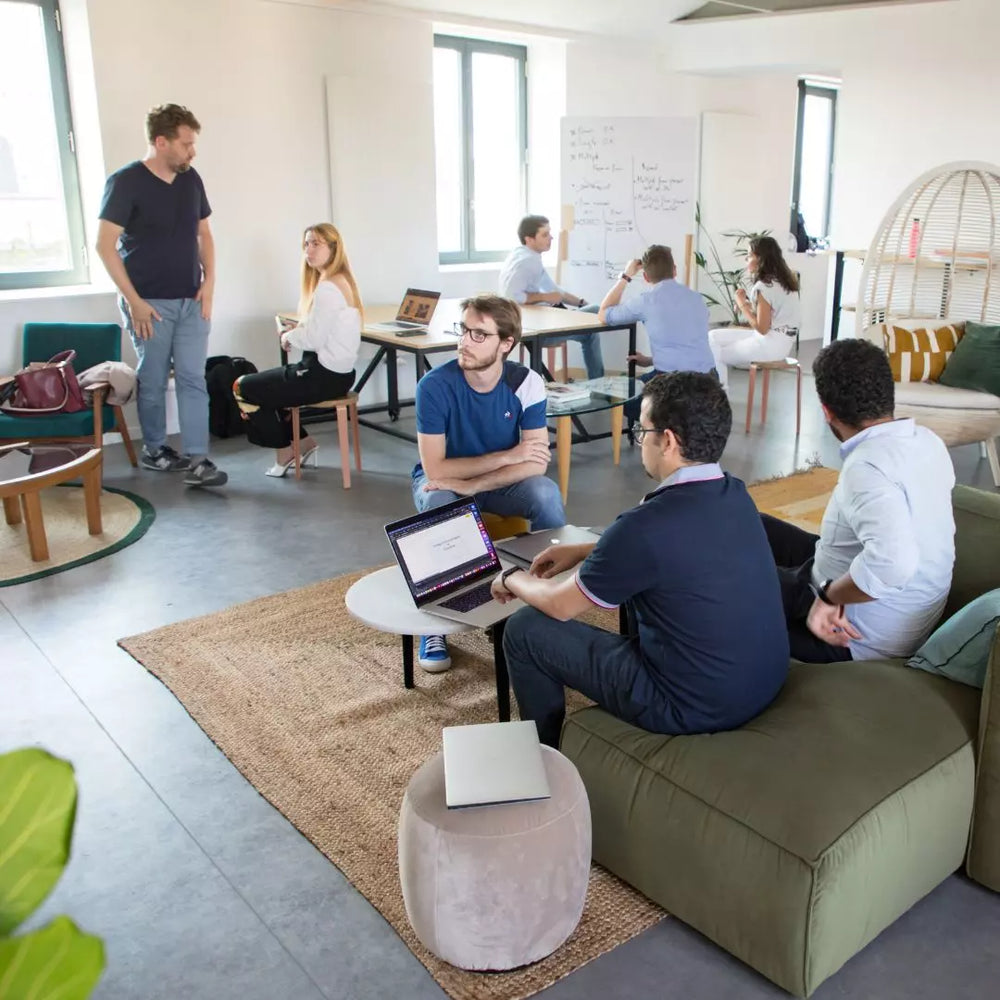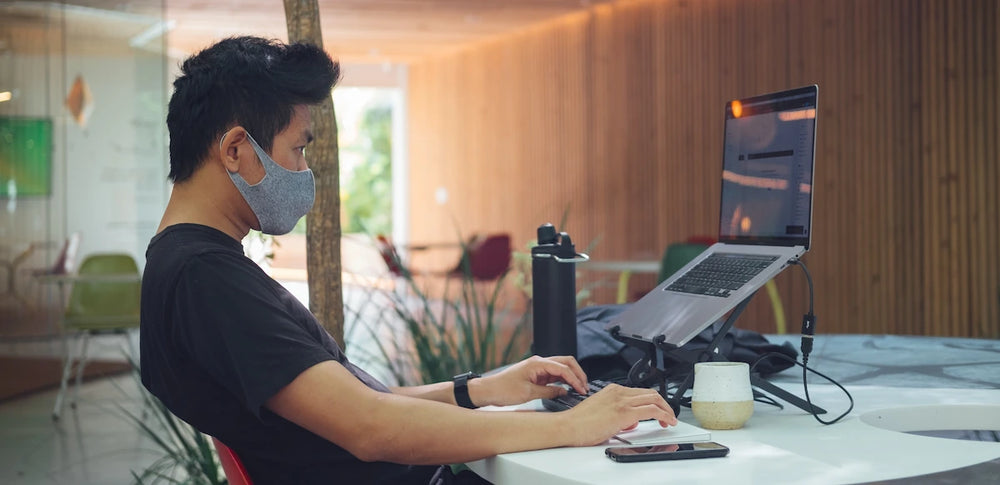The rejection of open space
If the multiple confinements have brought out the will of the working people to adopt teleworking in the longer term, at least partially, the massive return to the office from the start of the school year arouses the fear of finding unsuitable spaces.
Two-thirds of employees would prefer a closed office against only 16% an open space. It is a gulf between aspirations and reality that highlights the latest study "My post-confinement office" published in June 2021 by the Workspace Management Chair of Essec Business School.
Direct consequence of increased hearing sensitivity: “this workspace is particularly noisy and generates fatigue for the employees. It is perceived more as a space for collaboration than a workspace conducive to concentration,” explains Ingrid Nappi, economist and professor-researcher at Essec.
The open space also questions the aspect of health safety, being an open and passing office , and by the proximity to which it obliges: “it is perceived as being less hygienic. However, for 22% of employees, the choices referring to the hygiene and safety of the workspace, as well as to physical distancing (21%) are particularly important in these post-pandemic times” relates the professor.
Thus, the criticisms addressed to the open space are mainly linked to a lack of space, privacy and concentration on the one hand, and a lack of hygiene and health safety on the other.

Contrasting social representations
These expectations towards workspaces are to be qualified according to social status. The Essec Workplace chair reveals new results in its study, and highlights the disparities in the way working people see the office according to hierarchical position, gender and age.
It is employees who have a much clearer preference (66% of employees) for the closed office, while managers and executives are more attracted to exclusive telework (11%) or flex-office (6%) .
Coworking spaces are more attractive to female managers (9%) than to their male counterparts (3%) and lower-ranking female colleagues (3%).
Thus, managers, leaders, and men are more inclined to adopt flex office . Women and employees are more resistant to this and express a preference for assigned workstations, which in fact make it possible to materialize and enhance their place within the organization.
It is clear that gender and managerial position have an impact on aspirations related to the workspace. Nevertheless, beyond a certain hierarchical level, these gender gaps fade with respect to the hierarchical position, while they remain very present within the less well-off categories of the population.
Finally, it is young people who are the most impatient at the idea of finding the same working conditions as before, far ahead of their elders: 79% of generation Z, 64% of Y, 54% of X and 58 % of baby boomers.
This generational difference in the projection of the ideal office is again explained by the angle of social position: the youngest, forced to work from their small apartments or from the family home, have not benefited from the same material conditions and the same domestic habits as the older generations. This inevitably influences the way in which this period was experienced.

Keys to thinking about rethinking post-covid workspaces
Faced with the crisis and new working practices, companies must rethink the organization of their workspaces.
If the generalization of telework associated with the pressure of real estate costs massively lead companies to consider management in flex-office, this study finds that this does not correspond to the desires of employees. These results highlight the cleavages between expectations and reality, which cannot be ignored when thinking about new frameworks. On the contrary, they must be considered as keys to understanding to shape the space in the image of the organization.
The shape that the office of tomorrow will take will have to accommodate and enhance this plurality of perceptions and ways of living, of using space, to give everyone the opportunity to flourish professionally.
About Work With Island
At Work With Island, we are committed to taking into account the aspirations of employees, and our main mission is to bring peace of mind to all those who work in shared spaces. But we also understand the constraints of companies and we know the reality of the market. This is why we want to provide an innovative solution that meets the new challenges of work.
We are convinced that the office will remain the unifying core at the heart of a hybrid organization, between telework, offices and third places. The future of work will be collaborative or it will not be. This is why offering employees places to isolate themselves, concentrate and recharge their batteries, in the immediate vicinity of shared spaces, appears to be a necessity.
Discover our innovative solutions of soundproof capsules to offer peace of mind at work to all employees.


